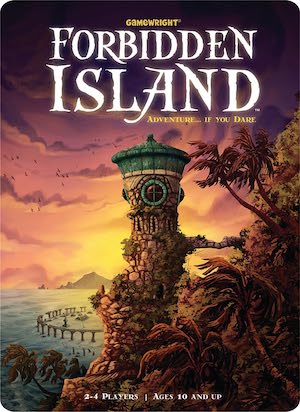I’ve always felt like escape rooms occupy a similar mental space as fantasy books. There’s something thrilling about walking into a room full of puzzles and curious trinkets, then solving a series of riddles to free yourself and your friends from the clutches of whatever narrative the room constructs. I’ve done escape rooms themed around zombies, wizards, and even The Legend of Zelda. Every time, I feel fully entrenched in an alternate world, and it scratches the same escapist itch as a fantasy novel.
I tend to look for the same kind of experiences in games, be they video games or board games. Recently, I’ve been on a kick of escape room-esque games with a fantasy bent. If you, like me, enjoy the unique intersection of these three delightful mediums, I present the following: my five favorite fantasy games that have a distinctly escape room vibe.
Inscryption
According to its Steam description, Inscryption is an “inky black card-based odyssey that blends deckbuilding roguelike, escape-room style puzzles, and psychological horror…”
Okay, I can’t stand video game genre naming conventions. That aside, “escape room” is right there in the blurb, and it’s accurate!
Inscryption plops players down in a log cabin with a mysterious set of eyes belonging to an opponent, against whom they must play a deck-building game. The card game itself is amazing, but the added flair of escape room elements seals the deal. Eventually, your opponent tells you it’s okay to stand up and walk around. The cabin is littered with puzzles that unlock new cards, power-ups, and other benefits. Solving them—and unraveling their relation to the game’s story—is intensely fulfilling.
If you’re worried about spoilers, rest assured I have barely touched on the game’s depths. Tip of the iceberg, folks! I’ll let you discover Inscryption’s remaining secrets on your own.
The Witness
Designer Jonathan Blow’s The Witness took the video game world by storm in 2016. The first-person exploration-puzzle game offered simple mechanics and beautiful scenery, then added hundreds of challenging puzzles.
The Witness is best played as a game of discovery. Different regions deploy thematically-relevant puzzle elements, requiring you to figure out how each puzzle works through trial and error or pattern recognition.
A lonely kind of whimsy permeates The Witness, and solving the puzzles within is as satisfying as the ending (or at least, I find it satisfying; fans occasionally differ on the ending and what it all means). The Witness plays not so much as an escape room, instead giving you an escape world.
Forbidden Island

Let’s hop into the world of board games for a moment! Forbidden Island is simple. Players are dropped into ancient ruins, which will soon flood and render them impossible to explore. It’s a cooperative experience, much like escape rooms, and the pressure of the looming flood throws a race-against-the-clock element into the mix.
Each player commandeers one character—diver, pilot, engineer, messenger, navigator, and/or explorer. Every role has a special ability, and players need to coordinate to make proper use of them to retrieve the treasures while avoiding danger as the water level rises.
There aren’t many outright puzzles in Forbidden Island. Instead, the game itself is a riddle with many solutions. Only proper teamwork will get everyone safely off the island, priceless treasures in hand.
Forbidden Sky and Forbidden Desert are more complex spinoffs of Forbidden Island. I haven’t played them yet, but they’re available if you love the original game!
Strange Horticulture
Few video games have captured my heart as quickly as Strange Horticulture. It only takes five to ten hours to complete, but every minute of that time is a puzzle-lover’s dream.
You run a shop called Strange Horticulture, where you sell mysterious and magical plants and remedies for ailments. People travel from all over the land to acquire your wares. Often they’ll come with a vague request: “I need something to quell my nightmare,” for example. You then need to look through your plants and encyclopedia to determine what that person needs.
Meanwhile, you can “travel” to locations on your map, which triggers a small bit of text describing your adventure there. Clues emerge throughout the game, and as you figure them out, you’re guided to new places on the map where undiscovered plants reside.
The riddles of Strange Horticulture would feel right at home in an escape room. They’re the perfect blend of challenging and solvable; I got stuck a few times, but never for so long that it became a slog. There are few consequences for getting things wrong—fail often enough, and you’ll have to solve a separate puzzle to get back into the action.
Kosmos Escape Games

EXIT: The Game is a series of physical escape games that come in a small box. Each box features a story and a mystery to solve. Items within the box are key to solving the riddles and cracking the codes within. The system for determining whether you’re right or wrong on a particular riddle is pure genius: you turn a wheel to indicate your intended answer, and it tells you which card to look at from a deck. Flipping that card will reveal whether you have it right or if you’ve missed the mark.
Each game comes with three hint cards that can give you helpful nudges toward tricky answers, with the third in each set outright telling you the answer.
I’ve played three of these games, and each time I’ve been floored by the level of intricacy Kosmos can pack into such a small box. They come in all sorts of themes, too. A Lord of the Rings box is available, for example, and there are various fantasy, sci-fi, and horror boxes to enjoy. If escape rooms and fantasy are up your alley, but video games aren’t, give EXIT: The Game a go!
Originally published July 2023
Cole Rush writes words. A lot of them. For the most part, you can find those words at The Quill To Live or on Twitter @ColeRush1. He voraciously reads epic fantasy and science-fiction, seeking out stories of gargantuan proportions and devouring them with a bookwormish fervor. His favorite books are: The Divine Cities Series by Robert Jackson Bennett, The Long Way To A Small, Angry Planet by Becky Chambers, and The House in the Cerulean Sea by TJ Klune.











Thank you so much! Great tips! :)

Neatly enough, while I thought Strange Horticulture sounded neat, I wasn’t seeking it out–but then I found I already had free access to it through Amazon, so settled in for an enjoyable couple of days dipping in and out of it. Definitely low-key fun.